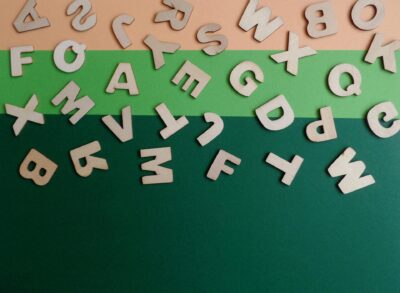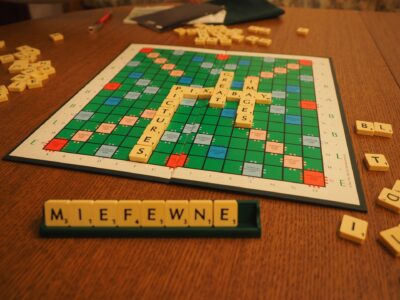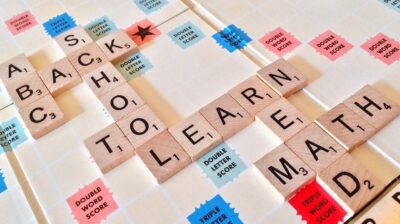
One of the trickiest elements of Scrabble is the element of chance. You can study all the words you want, but when it comes down to it, if you draw a bad hand of tiles out of the bag, you’re kind of screwed.
Or are you? Did you know that Scrabble actually allows players to exchange their tiles? According to the rules of the game, you can swap out one, two, or even all of the tiles in your hand if you don’t like them. The twist: you have to forfeit a turn to do so. For that reason, this play can be a little bit risky. If you don’t end up with good replacement tiles, you’ll have effectively ended up wasting a turn. That allows your opponent to rack up points while you sit back and watch. Even worse: you could even end up drawing tiles that are harder to play than your original rack, leaving you at a net loss.
However, if you’ve got a bad hand and you find yourself truly stumped, exchanging tiles can be a good play. To do this, all you need to do is inform your opponent that you are skipping your turn. Then pick which of your tiles you’d like to remove, set them aside, and pull their replacements. Once your new board is set up with seven tiles, you can put your rejects back in the bag. This process ensures that you don’t accidentally pull the tiles you are trying to return to the bag.
When Should You Exchange Your Tiles?
But all this doesn’t answer the real question: when exactly is it a good idea to exchange your tiles? Well, it’s pretty hard to say. The exact best move depends on a lot of factors, including your Scrabble experience, your opponent’s skill, what tiles you have, how many tiles are left in the bag, and how many moves are left in the game.
Generally speaking, exchanging tiles is something of a “last-resort” move. That means you shouldn’t take this step if you have a viable alternative option. If you have a three- or four-letter word you can play, you should do it, even if it’s made up of low-value letters. A few points are better than the zero points you’ll get in an exchange play. And with a three-letter word, you’ll still see significant turnover on your board, enough to potentially give you some new, longer words to play.
However, if all you can find is a one-tile play, it might still be worth it to do an exchange play. Yes, one or two points is technically more than zero; but if you make the most of your exchange play and swap out all seven of your bad tiles for better options, you’ll be able to set yourself up for a few good rounds. Sure, there’s an element of risk here, but in this case, it usually is worth it.
An exchange play can also be a good idea if your problem with your deck is that your letters are too similar. For instance, if you have a hand full of vowels, you know it’s going to take you several hands to weed through them to get a good rack. In that case, doing a one-and-done exchange might cost you at the moment, but it’ll pay off if you can get a few good rounds in thereafter.
However, don’t think it’s smart to do an exchange play just because you got a tricky letter, like Q or Z. These high-scoring letters can be hard to fit into a word, yes. But because they’re worth so many points, they actually offer a net benefit to players. Especially if your opponent is good at Scrabble, you should be careful giving up one of these valuable tiles. You might find it will come back to bite you later when your opponent plays TALAQ with the Q on the triple-letter-score square.
Other Scrabble Resources
Trying to improve your Scrabble game? Check out some of our other Scrabble resources, including our Scrabble Word Finder and our Scrabble Board Solver.


